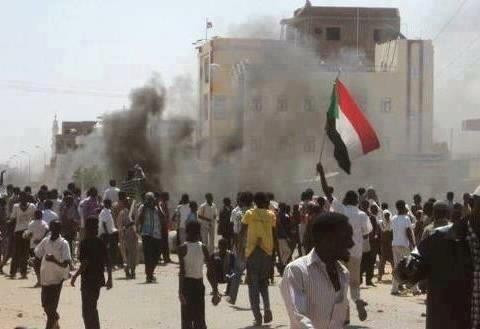Sudan Protests: Security Officials Shoot the Messenger
Amnesty International condemns crackdown.

In the nearly week-long protests in Sudan, the security officials are now targeting international journalists and bloggers who are reporting the event.
Salma El Wardany, a female journalist for the International news wire Bloomberg was 'detained' by the Sudanese security officials for five hours, while trying to cover the student protest at the capital city Khartoum.
The journalist was neither charged nor explained about her detention, said Wardany. During the detention, she was not allowed to make any telephone call including contacting a lawyer. Another Sudanese journalist Maha al Sanosi was also kept alongside Wardany.
Describing the situation, Wardany said when she was trying to park her vehicle outside a university campus; "six big men" came up to them and pounded on the car, according to a news24 report.
She said the security agents immediately seized her laptops and took her to the city outskirts allegedly for interrogation. The men reportedly did not identify themselves.
Another journalist with the AFP, Simon Martelli was also arrested and kept in detention on Wednesday as part of the crackdown. Martelli was kept in a similar detention for close to 12 hours.
Amnesty group strongly criticized the Sudanese authorities for targeting international journalists and activists.
"The Sudanese authorities must end its ruthless crackdown on protests and stop the harassment of journalists covering demonstrations, Amnesty International said after riot police in Khartoum used tear gas and batons to break up demonstrations over austerity cuts," the group said in a statement.
In the nearly week-long protests in Sudan, security officials are now targeting international journalists and bloggers who are reporting the event.
Salma El Wardany, a female journalist for the international news wire Bloomberg, was "detained" by Sudanese security officials for five hours while trying to cover student protest in the capital Khartoum.
The journalist was neither charged nor explained about her detention, said Wardany. During the detention, she was not allowed to make any telephone call including contacting a lawyer. Another Sudanese journalist Maha al Sanosi was also kept alongside Wardany.
Wardany said when she was trying to park her vehicle outside a university campus "six big men" came up and pounded on the car, according to a news24 report.
She said the security agents immediately seized her laptops and took her to the city outskirts allegedly for interrogation. The men reportedly did not identify themselves.
Another journalist with AFP, Simon Martelli, was also arrested and kept in detention on Wednesday as part of the crackdown. Martelli was kept in a similar detention for close to 12 hours.
Human rights watchdog Amnesty strongly criticised the Sudanese authorities for targeting international journalists and activists.
"The Sudanese authorities must end their ruthless crackdown on protests and stop the harassment of journalists covering demonstrations," Amnesty International said after riot police in Khartoum used tear gas and batons to break up demonstrations over austerity cuts.
The country has been witnessing student protests against the government over the last few days due to severe price rise and inflation. In May, the rate of inflation in Sudan was 30.4 percent. Fuel prices including petrol, diesel and cooking gas were also increased recently angering the people.
Sudan has not witnessed large demonstrations even during the famous Arab Spring in 2011, when most of its neighbours including Egypt and Libya ousted their autocratic governments.
Anti-government activists have been trying to capitalise on public anger on price rise to get rid of President Oman Hassan al-Bashir. Hundreds of opposition forces, a majority of them students, have hit the streets.
In the past, the government used to disperse the crowds and thwart any major demonstrations but the current protests are expected to snowball.
The security forces have also been accused of forcefully shaving protesters' hair, stripping them naked, flogging them and leaving them outside in the sun for hours.
© Copyright IBTimes 2025. All rights reserved.





















